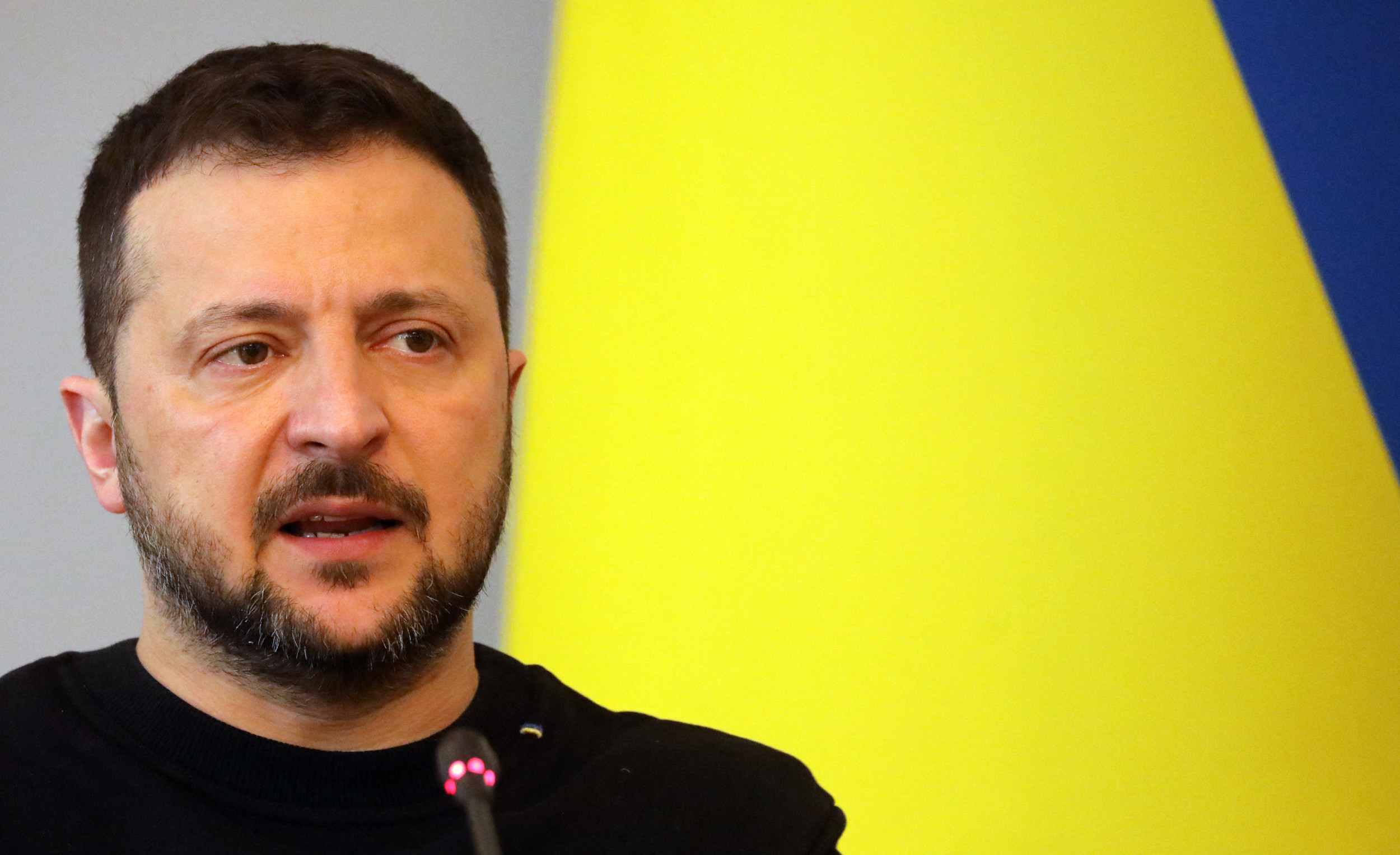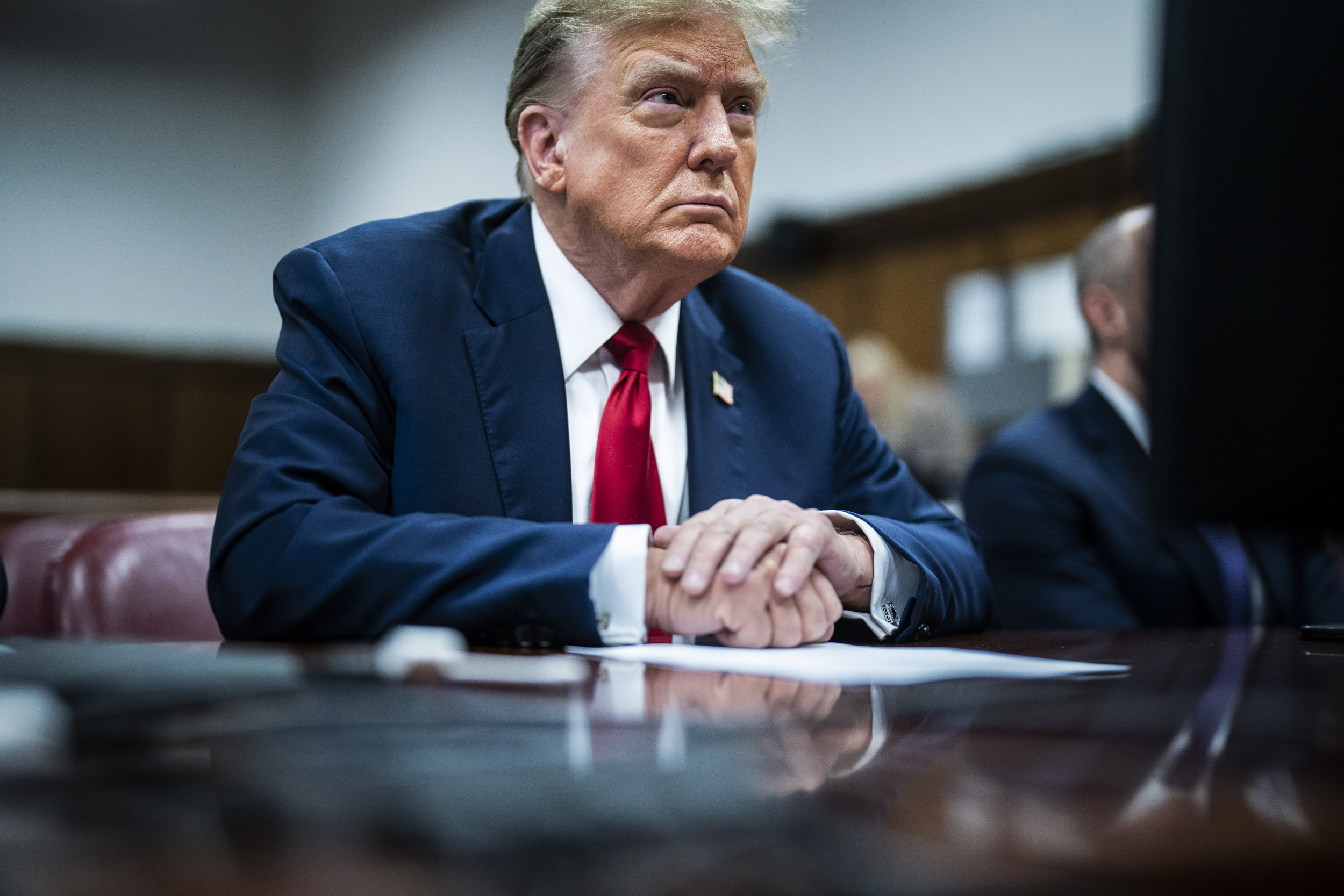Supreme Court Justice Sandra Day O'Connor and her husband, John, a Washington lawyer, have long been comfortable on the cocktail and charity-ball circuit. So at an election-night party on Nov. 7, surrounded for the most part by friends and familiar acquaintances, she let her guard drop for a moment when she heard the first critical returns shortly before 8 p.m. Sitting in her hostess's den, staring at a small black-and-white television set, she visibly started when CBS anchor Dan Rather called Florida for Al Gore. "This is terrible," she exclaimed. She explained to another partygoer that Gore's reported victory in Florida meant that the election was "over," since Gore had already carried two other swing states, Michigan and Illinois.
Moments later, with an air of obvious disgust, she rose to get a plate of food, leaving it to her husband to explain her somewhat uncharacteristic outburst. John O'Connor said his wife was upset because they wanted to retire to Arizona, and a Gore win meant they'd have to wait another four years. O'Connor, the former Republican majority leader of the Arizona State Senate and a 1981 Ronald Reagan appointee, did not want a Democrat to name her successor. Two witnesses described this extraordinary scene to NEWSWEEK. Responding through a spokesman at the high court, O'Connor had no comment.
O'Connor had no way of knowing, as she watched the early returns, that election night would end in deadlock and confusion--or that five weeks later she would play a direct and decisive role in the election of George W. Bush. O'Connor could not possibly have foreseen that she would be one of two swing votes in the court's 5-4 decision ending the manual recount in Florida and forcing Al Gore to finally concede defeat. But her remarks will fuel criticism that the justices not only "follow the election returns," as the old saying goes, but, in the case of George W. Bush v. Albert Gore, Jr., sought to influence them.
Since the high court is supposed to be above politics, guaranteeing a government of laws, not men, partisanship is a base charge to level against a justice. Even the most caustic critics last week were reluctant to directly accuse individual justices of putting narrow party interests before constitutional principle. Speaking carefully (he will have to face the justices again in future cases), Harvard law professor Laurence Tribe danced around the question last week in an interview with NEWSWEEK. The court's opinion was "peculiar and bizarre," said Tribe, who argued on Gore's behalf the first time the high court considered the case two weeks ago. The justices, he said elliptically, were "driven by something other than what was visible on the face of the opinions."
But what? It is a tricky business to read the minds of Supreme Court justices, who operate in one of the last truly secret precincts in Washington. From hints and sometimes murky signals, one must try to divine the true motivations of the High Nine. Was the court's judgment derived from established legal and constitutional principle? Or were a majority of the justices "result-oriented," searching for a high-minded philosophical rationale to paper over their political leanings? It is more than an idle guessing game. The court just decided the presidential election, and may have exposed itself to questions that could undermine its legitimacy. A NEWSWEEK reconstruction sheds light on the conflicting forces and elusive motives at play behind the curtain of the nation's highest court.
The court's majority was clearly aware of the perils of entering what one long-ago justice once called "the political thicket." "None are more conscious of the vital limits on judicial authority than are the members of this court," declared the unsigned majority opinion, as if the anonymous authors were eager to shed "our unsought responsibility to resolve the federal and constitutional issues the judicial system has been forced to resolve." And yet, the court's majority--supposedly judicial conservatives all, with a high regard for states' rights and an avowed distaste for interventions by the federal judiciary--reached down to stop the Florida courts from carrying out their electoral duties ordained by the Constitution. Even Bush's own lawyer, Ted Olson, was surprised when the high court issued an unusual emergency order to stop the manual ballot recount in Florida on Dec. 9.
In its final decision last week, the court found that the different standards used by the various Florida counties to count ballots--those dimpled, indented and hanging chads--violated the rights of voters to have their ballots counted equally and fairly. Sounds reasonable, but some court watchers regarded the high court's stated grounds for reversing the Florida Supreme Court with suspicion.
Curiously for a court that often preaches "judicial restraint," seven of the nine justices based their opinions on a clause of the Constitution that has been the single best tool of judicial activists for the past half century: the "equal protection" clause of the 14th Amendment to the Constitution. Long dormant until it was rediscovered by the liberal Warren Court in the 1960s, the 132-year-old equal-protection clause (passed to guarantee against racial discrimination after the Civil War) became a kind of all-purpose tool used by judicial activists to strike down any "state action" that seemed unfair. Since unfairness abounds in everyday life, the equal-protection clause is a potentially limitless invitation to meddling by judges. Indeed, the court seemed to be perhaps inadvertently opening the door to a whole new class of lawsuits challenging election procedures on grounds of unfairness. No wonder, then, that Justice John Paul Stevens chastised his brethren in a scathing dissent not so subtly impugning their motives. The court's action in Bush v. Gore, he wrote, "can only lend credence to the most cynical appraisal of the work of judges throughout the land."
Stevens is himself a case study in the mysteries of the court. Though a Republican Midwesterner and a Ford appointee, he surprised his backers by joining the liberal wing of the court. He is now considered a champion of causes favored by Democrats, like the right to abortion and affirmative action. Yet the bow-tied jurist is so determined to stay above the fray that he has spoken out against the recent practice of swearing in justices at the White House. Too political, says Stevens, who these days only irregularly shows up at his own chambers in Washington, preferring to draft opinions from his retirement home in Florida.
Other justices, too, seem to relish their aloofness from the political scene, in ways at once grand and quirky. The high court's weekly conferences are truly private. The junior justice, Stephen Breyer, answers the door and serves coffee, and the room is swept periodically for electronic bugs. When other government offices close down in snowstorms, the Supreme Court almost always stays open. Chief Justice William Rehnquist, a former military meteorologist, apparently likes to be above the weather as well as politics. State of the Union addresses are required appointments for lawmakers, cabinet officers, diplomats, the top brass--but at President Clinton's last SOTU, not a single one of the nine justices showed up. (A spokesman blamed "travel changes and minor illness.")
The justices refuse to allow cameras in the Supreme Court, and when their ruling in Bush v. Gore was announced last week, they had already gone home for the night. A clerk handed out printed copies--65 pages, six separate opinions--to panting reporters. When Governor Bush anxiously called his headquarters on his mobile phone, eager to know if he had just won the presidency, his campaign chairman, Don Evans, was forced to say, "We'll have to call you back."
The next morning one of the justices, Clarence Thomas, gave an especially pointed--some might say defensive--account of the court's Olympian detachment. Speaking to a group of high-school students, he referred to the houses of Congress, located in the Capitol across the street from the court, as "entirely different worlds... We happen to be in the same city. We may as well be on entirely different planets." Politicians, he declared, "have no influence on us. The last political act we engage in is confirmation. That is the last act. And I have yet to hear any discussion, in nine years, of partisan politics in this--among members of this court." Thomas is regarded as a somewhat extreme example of aloofness. He's said he does not read newspapers, except for the sports pages, and he almost never speaks up during oral arguments, the court's one semipublic outing. The only glimpse he offered of his role in Bush v. Gore was to indicate that in the rush to hand down a decision he pulled his first "all-nighter" since law school.
At least Thomas's name appeared in the court's opinions, joining Rehnquist and Justice Antonin Scalia in a separate opinion arguing that the Florida Supreme Court had violated state law by ordering a recount. The name of the likely author of the majority opinion--Justice Anthony Kennedy--was entirely missing from court documents. Kennedy might have had some help from O'Connor, but court watchers can only guess, since her name is also absent. The opinion was labeled "per curiam," meaning "by the court." Normally, per curiam opinions are unanimous and uncontroversial. Kennedy's (and/or O'Connor's) will be the source of controversy and debate for years.
Kennedy is regarded as one of the court's swing votes, a moderate Republican who, like O'Connor, has made majorities for both liberal and conservative rulings. A Reagan appointee--considered less controversial than Robert Bork, whose appointment he took after Bork was rejected by the U.S. Senate in 1987--Kennedy has a somewhat grandiose sense of his own role. He allowed a reporter from California Lawyer magazine to observe him just before he took the bench to announce a momentous abortion decision, Planned Parenthood of Southeastern Pennsylvania v. Casey, in June 1992. The reporter described Kennedy moodily staring out the window. "Sometimes you don't know if you're Caesar about to cross the Rubicon or Captain Queeg cutting your own towline," Kennedy mused aloud. He asked to be left alone, telling the reporter, "I need to brood... I generally brood, as all of us do on the bench, just before we go on. It's a moment of quiet around here to search your soul and your conscience."
Kennedy's decision in Casey, reaffirming the court's 1973 decision in Roe v. Wade guaranteeing women the right to choose an abortion, infuriated the court's conservatives. They suspected that he had been somehow manipulated by the court's liberal wing. At an end-of-the-year skit by the high court's clerks, he was gently mocked as "Flipper." (Clerks from the chambers of the conservative justices played the theme song from the old TV show, "They call him Flipper, Flipper...") Kennedy is now said to be sensitive to any suggestion that he is a pawn of other justices. There were rumors last week that Justice David Souter, another centrist, was quietly lobbying Kennedy to allow the Florida voting to go forward. A shy bachelor with an aversion to incandescent light, Souter does not seem like much of a glad-hander or arm-twister. A clerk recalls finding him in his darkened chambers reading with a small desk lamp. "It was like wandering into a room with Miss Havisham," the clerk reported. But Souter is brilliant and persuasive, and he was said to be trying to bring Kennedy around to his point of view: that the Florida Supreme Court be given at least until Dec. 18 to adopt a uniform vote-counting standard. That narrow window might have given Florida a chance to finish a statewide manual recount--which might well have pushed Gore ahead of Bush.
But then what? If the Florida Supreme Court ordered the secretary of State, Katherine Harris, to certify Democratic electors for Gore, the GOP-dominated state legislature seemed determined to appoint its own set of Republican electors for Bush. Congress would then have had to choose. But the Republicans in the House were likely to reject the Gore electors, and the Senate--divided 50-50, with Vice President Al Gore casting the tie-breaking vote on his own behalf--would almost surely reject the Bush electors. What then? In one scenario, the whole mess would go back to Florida for the governor to decide--Gov. Jeb Bush.
At some point on this chaotic journey, the U.S. Supreme Court was bound to be drawn back into the fray, perhaps to decide if George W. Bush could, in effect, be elected by his own brother. It was the prospect of such an electoral circus (with the justices in the role of ringmasters) that may, in the end, have forced the Supreme Court's intercession last week. However high-handed the justices appeared, they might have looked far worse trying to referee a true constitutional crisis in January.
Not a word was uttered about this potential car wreck in the court's decisions. But at least one politician who is close to Justice Scalia, Sen. Robert Torricelli of New Jersey, believes that the court was trying to save the nation from an ugly deadlock. Torricelli, who is friendly with Scalia from an Italian-American group in Washington (they have gone on camping and rafting trips together with other prominent Italian-Americans), has a feel for the court's internal dynamics. As Torricelli saw it, Scalia and the other justices peered into the abyss and then fashioned an opinion to avoid it. The New Jersey senator told NEWSWEEK that his "disappointment" in the defeat of his fellow Democrat Al Gore was coupled with "gratitude that the nation dodged a bullet."
And Justice O'Connor's role? She is not likely to hold forth on her personal views any time soon. Scholars will long debate the court's reasoning and motivations. But one lesson is clear to presidential candidates. On Dec. 9, when the Supreme Court stopped the counting in Florida, shouts of glee broke out in the offices occupied by Bush's legal team in Tallahassee. "It was like we had just won the high-school basketball game after the last-second Hail Mary shot at the buzzer," said a participant. A top Bush adviser wandered by the desk of Timothy Flanagan, one of Bush's lawyers. "Do you think," Flanagan asked, "that Governor Bush understands now how important the Supreme Court is--and how important it is to pick the right people?"
Uncommon Knowledge
Newsweek is committed to challenging conventional wisdom and finding connections in the search for common ground.
Newsweek is committed to challenging conventional wisdom and finding connections in the search for common ground.
About the writer
To read how Newsweek uses AI as a newsroom tool, Click here.








